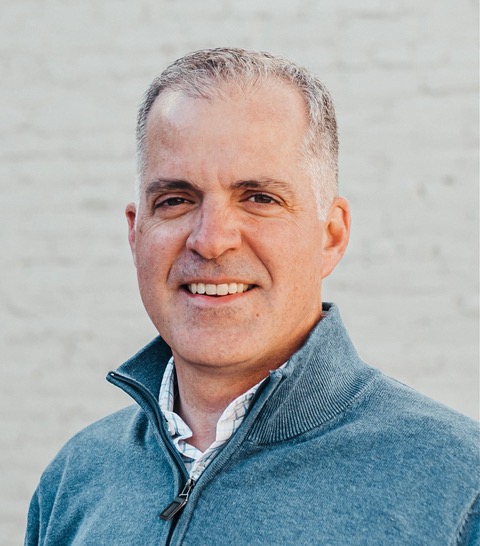
By Daryl Crouch
Cooperation is overrated.
That was my mantra for many years. As a pastor, I believed God had called me to lead my church, which by the way, paid me good money to preach the Bible, equip the saints, care for the hurting, and add to our number daily.
Cooperating with other pastors and churches only distracted from my calling—so it seemed—until I took another look at the New Testament.
Jesus spoke most often about the Kingdom. In the greatest sermon ever preached by the greatest preacher, He said, “But seek first the kingdom of God and his righteousness, and all these things will be provided for you” (Matthew 6:33).
He also prayed in John 17 for a unity among his followers that would be more than an idea or philosophy, but rather a practical and powerful testimony to the world. Most of the apostle Paul’s letters were written to churches that bore the name of their city. The risen and ascended Jesus did the same thing in his Revelation to John.
As I considered the role of the local church to advance Jesus’ Kingdom, cooperation and genuine collaboration with other Jesus-loving pastors and churches in my city was no longer an “overrated” option.
It was an essential practice.
Today, this Kingdom priority plays out in a number of practical ways in our city. For example, a large group of pastors meet each month to pray for one another and for our community.
We gather our churches to address systemic racism and to seek reconciliation and revival. Together, we serve pockets of vulnerability that include hunger, addiction, safety, and education.
Pastor-to-pastor relationships—along with church-to-church partnerships—not only encourage us in the ministry, but they also build bridges that allow us to show and share the gospel in a way that advances Jesus’ Kingdom.
Through linking arms with other local church leaders, I’ve discovered four ways this kind of collaboration extends the gospel into our community.
Metrics extend beyond the church
For most pastors, attendance, baptisms, and budgets are how we measure progress. Those metrics are extremely important.
Healthy churches make progress in these areas, but when our priority is the Kingdom, our only question is not the health of our church, but the health of our city.
I’ve heard Jimmy Scroggins, pastor of Family Church in South Florida, ask the question like this: “Are there fewer lost people in your city today than there was a year ago?”
When the Kingdom is our priority, we value, equip, send, and celebrate church members who serve our city in Jesus’ name as much as we do when they serve in our preschool ministry.
Relationships extend beyond the church
The apostle Peter charged pastors to “shepherd the flock among us” (1 Peter 5:2), but the never intended that our concern was only for the people who came to us.
Instead, each of the apostles modeled pastoral ministry as they expanded their network of relationships in every city they entered. They made a habit of engaging people in the marketplace and in the public square through meaningful relationships and gospel-saturated conversations.
In today’s context, as pastors get out of the church office and step into the offices of the school principals, the mayor and city officials, the police and fire chiefs, and business leaders, Kingdom-focused relationships expand.
Together with other local churches, we engaged our community leaders by building a coalition of partners from the domains of education, commerce, healthcare, and government. This network of relationships helps us respond well in times of crisis.
Leaders from all over our city see pastors working together to serve the city. We then become trusted friends, confidants, cheerleaders, prayer warriors, and counselors.
Trust extends beyond the church
Before Stephen Covey wrote the book The Speed of Trust, Jesus knew our love was the currency of trust that would advance his Kingdom. He fed, healed, and helped many people who didn’t follow Him.
Unfortunately, many pastors and church leaders serve the community in silos simply to gain market share. The gospel has become a transactional hook used to grow our churches rather than the power of God to transform lives.
Because of this, many people in our communities are cynical toward churches. They know we want them to attend our church, but they aren’t convinced we’ll still love them if they don’t.
As we join other leaders and churches to love and serve people with open hands—with no conditions—trust grows, and the gospel has more opportunities to take root in our city.
Impact extends beyond the church
The Kingdom of God is big. It’s bigger than one church, one city, or even one nation. It’s bigger than one denomination, one ministry philosophy, or one ethnicity.
Although the cross demolished the wall of separation between Jews and Gentiles, for example, the apostles continued to press in and challenge attitudes and behaviors of racism and spiritual superiority that resided in the early church.
When we partner with other pastors and churches in our community we pull away the rubble of the walls of separation the gospel has torn down.
We face down racism, injustice, and socioeconomic divisions. We demonstrate acts of repentance. We tutor our church family in how to love our neighbors.
And ultimately, we answer Jesus’ call for unity—which not only sanctifies us, but also extends our gospel impact in the community.

Daryl Crouch
Daryl Crouch is the executive director of Everyone’s Wilson, a network of gospel-loving churches working together for the good of the community. Prior to this role, he pastored churches in Texas and Tennessee for 28 years. He and his wife Deborah have four children.










